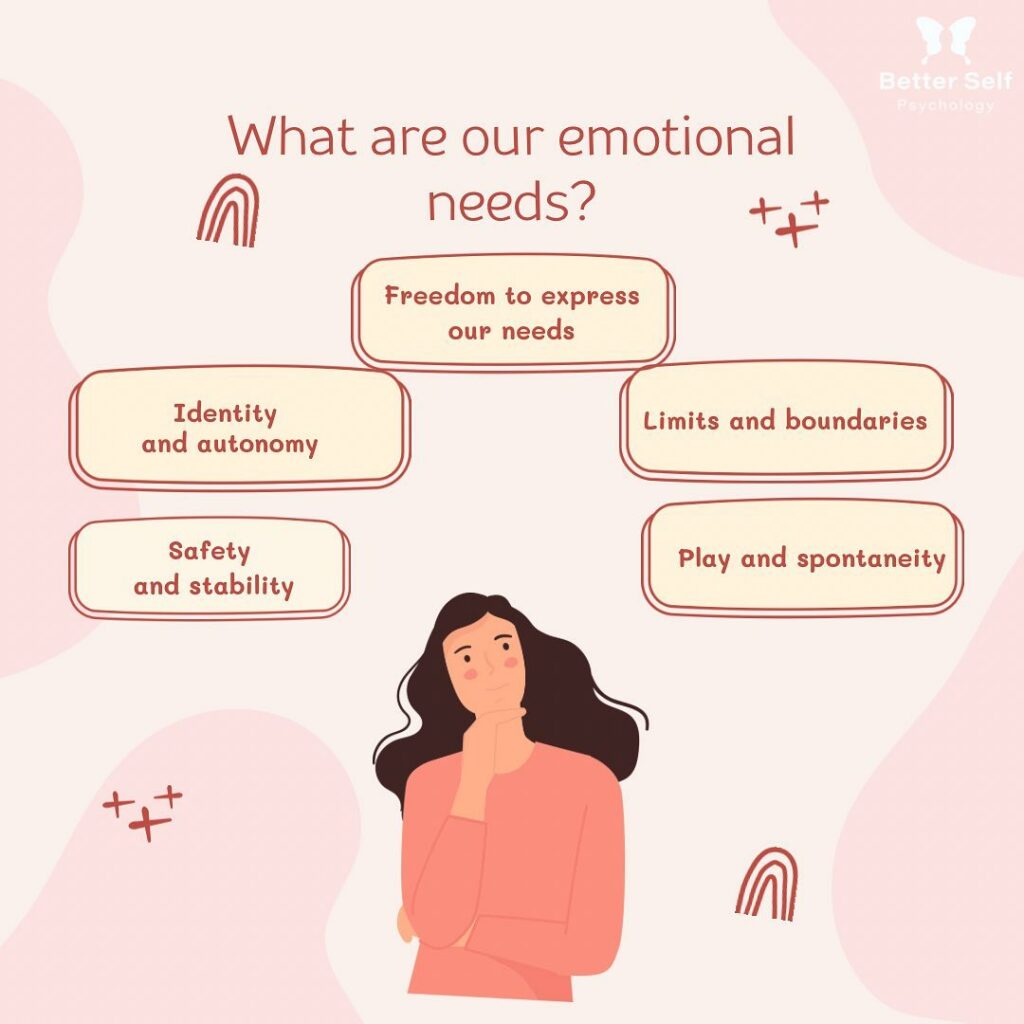Unfortunately for many people, these needs weren’t met. When this happens, we look at ways to meet these needs now as adults.
What are these needs?
Safety and Stability. Having a safe physical space as well as an internal sense of safety and stability.
Identity and Autonomy. Do you have a sense of who you are? We can have an identity as a parent, partner, or friend, but it’s also important to know who we are outside of these roles.
Freedom to Express your Needs. It’s important to express your needs in a safe and respectful way and to be heard and valued by others.
Limits and boundaries. To have loving discipline and structure to help us stay safe emotionally and physically.
Play and Spontaneity. Adulting is hard. Responsibilities and the day-to-day stress of life can take their toll. It’s important to make time for fun and play.
Children who don’t have their emotional needs met may have difficulties identifying their emotional needs as adults.
Schema Therapy has shown remarkable results in helping young people change patterns they have lived with for a long time.

This article was originally published on our social pages – to ensure you don’t miss any of our latest updates – jump over to our Facebook or Instagram pages.
If you are interested in learning more, please reach out and contact Better Self Psychology >.



